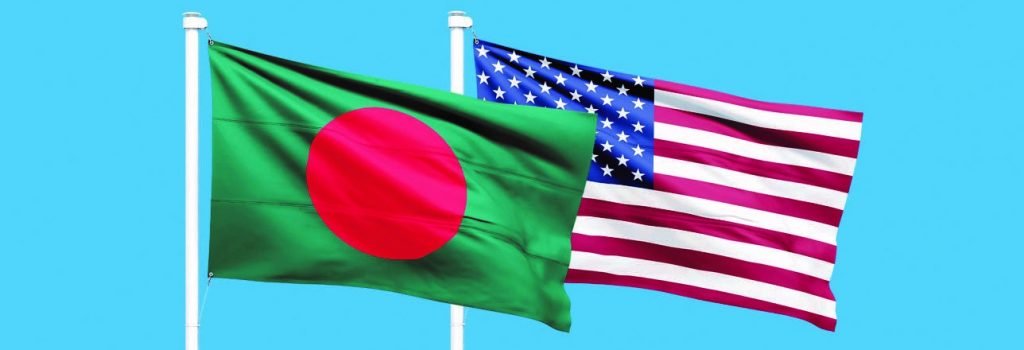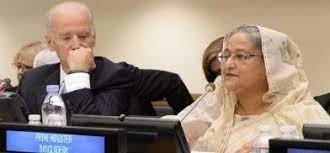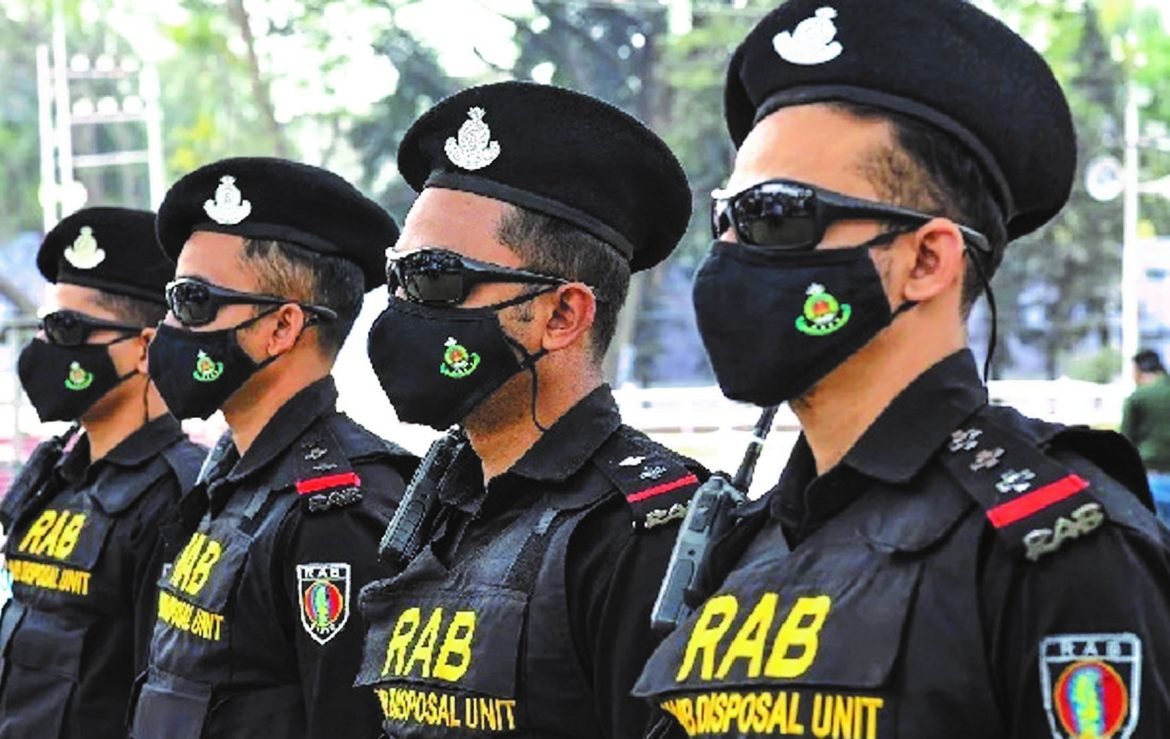The US has to take into account the formidable leverages Bangladesh currently enjoy in its relationship with it in particular and the West in general. China today is a superpower in the economic and military sense fully willing and able to extend its protection to countries like Bangladesh considered as strategically important. The US would be acting prudently if it bears in mind this China card Bangladesh can play so well when it sits across the table for talks with Bangladesh delegates during security talks in this March, writes Enayet Rasul Bhuiyan
Understandably, all eyes of keen observers in both Bangladesh and the United States (US) remain focused on the upcoming security talks between the two countries now scheduled to start from March 20. Earlier, the talks were formally scheduled for starting from April 20. That these talks have been rescheduled and brought forward to March is a sign that both countries are eager for an improvement in bilateral relationship that got strained recently over the US’ accusing certain security officials and/or agencies in Bangladesh for violating human rights and banning their chiefs from travel to the US or owning properties there.
Conspicuously, after a deluge of shocked expressions by governmental high-ups in Bangladesh due to these actions by the USA’s government, there has been noted a flurry of exchanges between top persons in the two administrations aimed at cooling down the situation and returning to the path of negotiations and diplomacy. Our Foreign Minister (FM) phoned and talked to his US counterpart.
The US Foreign Secretary gave a patient hearing to our FM and promised to engage in a course of productive talks with Bangladesh over the issues of contention. He said that his country highly values its relationship with Bangladesh and wishes to expand and improve them. Such statements from the US were followed by decision that a round of the security talks between the two countries would be held sooner than later.
Therefore, there is now expectation borne out of positive developments that the US-Bangladesh relations won’t fall into a quagmire but enter into a period of deeper understanding based on mutual respect and realization about how both sides need each other in their higher national interests.
Gone are conclusively the days when the US was the biggest aid giver to Bangladesh as it was right after the independence of Bangladesh in 1971. It was replaced by Japan and the European Union (EU) in subsequent years. From a position of hopeless receiver of foreign charities and as a LDC country, Bangladesh today has graduated to a Position of a developing country and a middle income country. Bangladesh will become the 25th largest economy in the world by 2035, advancing from 41st place this year. It meets all its needs of administrative expenditures and a major part of its developmental expenditures from its own resources.
It takes foreign assistance financially, but not as grants – rather as loans, which are paid back or serviced punctually. Bangladesh enjoys a splendid record of timely repayment of its foreign debts, which also remain quite limited in contrast to countries with poor records of debt servicing. For example, Bangladesh is building its biggest mega project ever, The Padma Multipurpose Bridge (PMB), entirely with its own resources. This was unthinkable even a decade or two ago.
Thus, the US can no more treat Bangladesh as if its economic or physical survival depends on the US gratis alone. It is compelled to take into account that Bangladesh has other options for getting economic supports or ways of sustaining its own self with considerable economic capacities it developed over the years.
The more a country is obliged to remain dependent on foreign dole for survival, the least its ability to ward off foreign pressures or diktats. Bangladesh is far away from such a tight corner and thus able to execute its policies with much greater independence or freedom. It does not have to bend itself pathetically to please any imaginary foreign overlord. It can stand up to external pressures and assert its sovereign existence expecting that the same will be duly respected by the pressure givers.
As it is, Bangladesh’s records in international relations should be far acceptable internationally. For example, the Myanmar junta has an awful record of most flagrantly violating basic human rights of its own people, the Rohingyas. In stark contrast, Bangladesh has been protecting the human rights of the Rohingya people by allowing them to come to Bangladesh and get food and shelter notwithstanding that Bangladesh has little physical space it can spare and a vast population burden of its own. In this situation, Bangladesh’s selfless role was praised round the world.

attend a press conference at the state guest house Padma in Dhaka on October 15, 2020
The US government did not invite Bangladesh to attend the Democracy Summit at Washington recently on badly perceived grounds of lack of democracy in Bangladesh. But the renowned Economist magazine published from UK in its recent issue described how democracy ought not to be misconceived as ‘one size fits all’ type of governance. It sought to describe how democratic dispensations round the world can be remarkably ‘varied’ and needs not to conform very neatly to the western model in all cases. The Economist credited Bangladesh for nonmilitary governance for a long period, a legal system where the citizens can seek redress from tyrannies and other grievances, periodic holding of elections, functioning of a parliamentary system, great deal of press freedom and other basic freedoms such as freedom of assembly, etc. Therefore, in the Economist’s views Bangladesh’s conditions are not so bad that it had to be snubbed so badly by not inviting it to the Democracy Summit because its position for democratic attainments are better than a large number of countries, which, ironically got invited to this Democracy Summit.
In fact, the US government notably issued another report from its State Department soon after its punitive action against Rapid Action Battalion (RAB) that was somewhat contradictory to its earlier penal action against RAB. This report rather praised RAB as an organization that did much highly useful work in stopping human trafficking and narcotics control. It praised RAB for its sound contribution under the UN system for policing troubled hotspots around the world. The report also recognized that alleged cases of violation of human rights by RAB have been a trickle in recent years indicating seriousness on the part of its incumbent government of Bangladesh to make RAB an yet more reformed and cleansed organization.
The second report following the sanction order on RAB and almost simultaneously coinciding with our government’s protestations against the same showed up that the US government’s stand was not of an all or nothing nature, but flexible and capable of a review. It reflected that the US government was duly sensitized by our government’s reactions and could be prepared to rethink and rescind the sanction orders.
Therefore, there is now expectation borne out of positive developments that USA-Bangladesh relations won’t fall into a quagmire but enter into a period of deeper understanding based on mutual respect and realization that both sides need each other in their higher national interests.

Bangladesh would be going to the March and subsequent talks with the US feeling more confident of its rightful position as well as sensing that it has more clout or leverage than was earlier thought. Specially, at the back of the minds of our policymakers, would be the strength that they can play the China card against the US.
The only outcome of the US arm twisting Bangladesh on RAB and other related issues can be nothing other than growing alienation of Bangladesh from the US. From such an outcome, Bangladesh would have not too much to lose, but a great deal to gain. It is already thought that China like a new lover would draw Bangladesh even more lovingly into its fold under its Belt and Road Initiative and other strategic areas. Thus, Bangladesh would be cut loose from the US and the latter would find itself disadvantaged completely in regional geopolitics with China replacing it too easily.
China is the country with the highest foreign currency reserve in the world with trillions and trillions of dollars in it. So far, relationship with the US and Western countries in general has been the pivotal feature of Bangladesh’s foreign policy. But it would be so easy for China to wean Bangladesh away from this Western sphere of influence by spending a little bit from its mighty reserve. And once lost, the West would find it extremely difficult to get back its influence and hence power over Bangladesh when Bangladesh is figuring more and more prominently in its China containment strategies.

Chinese President Xi Jinping’s visit to Bangladesh in October 2016 is worth noting. The two governments, during Xi’s visit, signed 27 deals worth US$ 24.45 billion in soft loans for a number of key development projects in Bangladesh. In addition, Bangladeshi and Chinese firms signed various agreements worth US$ 13.6 billion of Chinese investment in Bangladesh, aimed at boosting bilateral trade. The total volume, US$ 38.05 billion, happens to be the largest ever deal committed to Bangladesh by any single country.
So, Bangladesh is already deeply involved in the Chinese scheme of things. But China would not be committing so much resources to Bangladesh without thinking of a quid pro quo. China has profound interest to build a deep-sea port in Sonadia Island off Cox’s Bazar. Chinese interest is discernible from Beijing’s investment pledges to the littoral states of the Indian Ocean as a precursor to negotiating basing rights in their vicinity. Examples are its assistance in developing deep ports in the environs of key littoral states – such as Gwadar in Pakistan, Hambantona in Sri Lanka, and Kyaukpyu in Myanmar.
This Chinese activity is believed to be a way forward towards the accomplishment of its “string of pearls” strategy in the Indian Ocean. It would be no wonder if Bangladesh’s Chittagong and Cox’s Bazar are contemplated by Beijing as two alternative pearls in its strategy of “string of pearls”. Any potential basing right in any one of these two Bangladeshi coastal regions will add to Chinese capability to counter the naval maneuvering of Beijing’s powerful adversaries – i.e. India and the US – in the Indian Ocean.
Also, port facility in Bangladeshi coast is important in the context of China’s Malacca Dilemma. At the core of the “Malacca dilemma” is a situation of risks associated with China’s overwhelming reliance on the Malacca strait for energy supply. Any compromise on China’s access to the Malacca strait, caused by actions of powers hostile to China, would have critical impact on its energy interest. The dilemma forces Beijing to look for alternative energy supply routes bypassing the Malacca strait. Connecting sea-based energy route with China’s western regions, via Pakistan’s Gwadar seaport, under the rubric of China-Pakistan Economic Corridor (CPEC), stands as one of the alternatives. The other alternative is China-Myanmar cross- border oil pipeline. Oil – sourced from West Asia and Africa, and transported through the Indian Ocean – is dumped in Kyaukpyu, Myanmar. The pipeline in question pumps this oil to Kunming, China – an alternative that avoids the Malacca strait.
Bangladesh, too, holds importance in Beijing’s pipeline project. A parallel pipeline, running from Chittagong via Kyaukpyu to Kunming, would just enhance Chinese alternative to withstand the Malacca dilemma. This is a key context through which one can see the importance of Bangladesh, alongside Myanmar, in China’s proposal of building the Bangladesh-China-India-Myanmar Economic corridor (BCIM-EC). The inclusion of India in this proposed corridor seems to be just part of Beijing’s discourse of “peaceful development” – a discourse seeking to allay the fears that China’s rise has caused in the minds of its rivals.
The above should make it clear that the US has to take into account the formidable leverages Bangladesh currently enjoy in its relationship with it in particular and the West in general. The world is no longer ruled by the Pax Americana or the West meaning the victorious powers after World War II. Other powers are already challenging the theoretical overlordship of the US or the West. China today is a superpower in the economic and military sense fully willing and able to extend its protection to countries like Bangladesh considered as strategically important by it. The US would be acting prudently if it bears in mind this China card Bangladesh can play so well when it sits across the table for talks with Bangladesh delegates during security talks in this March.


